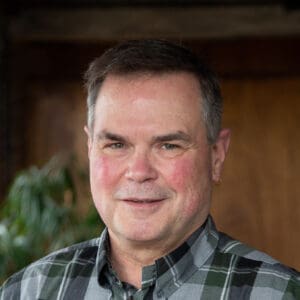News, we like to tell young journalists trying to decide what’s newsworthy — and perhaps more important, what isn’t — is the exceptional. Something unexpected, outside the norm.
Example: You can write a story about 68,000 folks arriving safely at work at Boeing on a Tuesday, but the one guy who flipped his Tesla on the Mukilteo Speedway is going to make the newspaper.
That thought came ringing back recently with an interesting CDN story about the flagging memberships of local service clubs.
Given the important role service clubs such as the Elks, Kiwanis, Rotary and others have played in civic life in the U.S. for many decades, a threat to their ongoing existence clearly qualifies as news. But the reasons for that threat are less newsworthy, because they’re so painfully obvious.
Namely: Service clubs in their current incarnation, and for all their good deeds, which are many, bear literal emblems of a U.S. society that no longer exists — for all the “better” and “worse” connotations that come with that.
In general, clubs both in our midst and outside it have struggled with the same factors: an aging membership, reflecting, clearly, a societal shift away from traditional notions of “community” or even the previously defined “common good.”
Some elements of that swing might be viewed as progress: Service clubs, many of which date to the 19th century, by definition have always been exclusionary, with membership standings determined by a wink/nod pre-approved “sponsorship” by an existing club member.
Most service clubs say they welcome citizens over 21 in good standing, whatever that means. But all too often, said “standing” has been code for ethnicity, socioeconomic status and other factors not discussed in polite company at holiday parties attended by people wearing floppy antlers.
Big picture: Given the declining numbers, it’s safe to say that “good standing” to our younger friends is a completely different concept than for more-seasoned citizens. For service clubs — even those who have admirably contorted themselves, somewhat, to appeal to generations next — that’s a tremendously sticky wicket, one that earns some sympathy here.
On the other hand, let’s be honest: Some of these clubs simply haven’t tried very hard.
Case in point: One International Order, with a local outlet on Samish Way, bearing the mascot of a large, antlered ungulate.
A few years ago, living a short bike ride away from the lodge of said herd, I decided to drop by and find out about applying for membership. The Benevolent and Protective Order of the Elks, from what we knew, did a lot of good community work.
I swung by one day and picked up the membership application, printed in red, white and blue.
It was all going fine until I started answering the personal questions: Over age 21, check. Live in proximity of the herd, check. U.S. citizen, check.
Then came the “excuse me?” part.
“Do you believe in God? Answer: __________.”
I was still tossing that around in my head when I got to Question 7:
“Are you now a member of the Communist Party or indirectly connected or affiliated with the Communist Party, or with any organization or group advocating or believing in the overthrow of the government of the United States by force? Answer: ___________.”
First: Insert your own Donald Trump quip here. Second: Seriously?
I laughed, a little, and went back to the Lodge to report that I had mistakenly been given a membership application form from a box sitting around since 1956.
“I think this is a mistake,” I said, in a tone not suggesting I was an atheistic fellow traveler.
“Nope,” said the nice woman, “that’s correct!”
I left it with her and went back to my usual life of blissful self-indulgence.
An extensive, 30-second online research dive confirmed for me that yes, this is a standard of the Elks, USA, whose website welcomes all who are citizens over the age of 21 “who believe in God.” (The form I received is reprinted here. I haven’t found someone at the local lodge to confirm whether that 2004 revision is still in use. A 2017 revised application from the national organization changes the language of both questions, but they live on.)
My own feelings about God are beside the point, which sort of is the point: A local service club, by my standards, simply has no right to ask, or care. Equating religion with morality has been a slippery slope historically; it is particularly precipitous now.
Veteran Elks I discussed this with pooh-poohed the matter. It’s a throwback, they said, and nobody would question a person’s choice of faith. “It’s more an attesting to a higher power kind of thing,” one of them said.
OK. But just guessing here, that excuse isn’t likely to fly with most younger potential members. In a society where national polling indicates fewer and fewer young people willing to check any religion-smelling box on a form, clinging to these old canards as an excuse to identify folks of “good moral character” is an apartment-complex-sized red flag. Deservedly so.
Service club members interested in preserving their institutions, and all the value that has come with them, need to reinvent themselves by starting from scratch and sticking with the basics.
The old rule of never wanting to be a member of an organization that would include yourself might apply here: American service clubs of tomorrow, if they’re worth saving, need to look decidedly different from the ones whose Jell-O salad picnic menus were determined by our parents. Some parts of those traditions are worth saving. Others are simply glaring reminders of unbearably exclusionary pasts.
It’s a simple equation: Adapt, or die. Here’s hoping local service clubs, which in my mind are worth saving, focus swiftly on the former.
Ron Judd’s column appears on Wednesdays. Email: ronjudd@cascadiadaily.com; Twitter @roncjudd.




County growth plan must protect farming